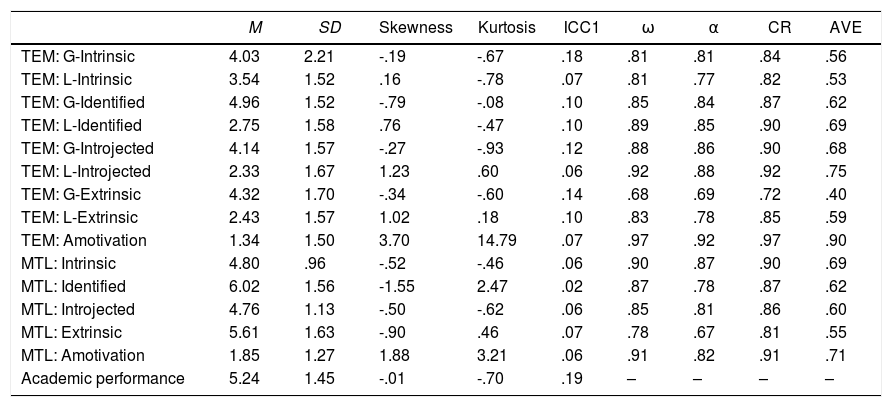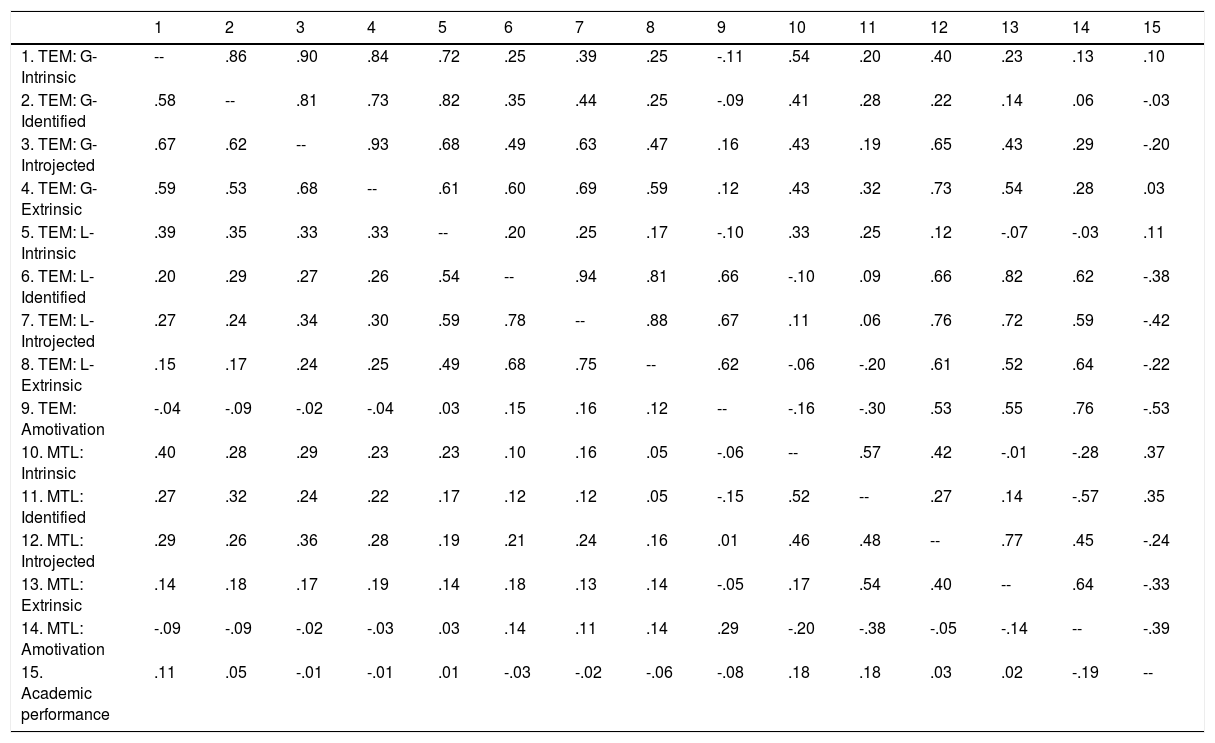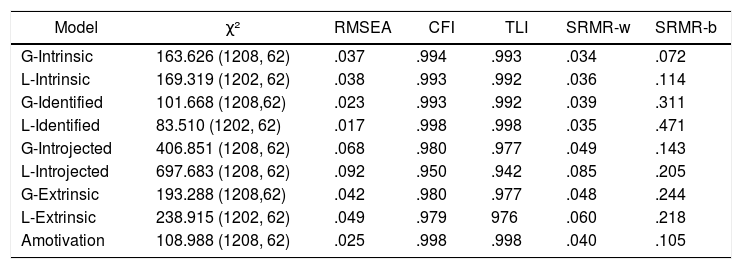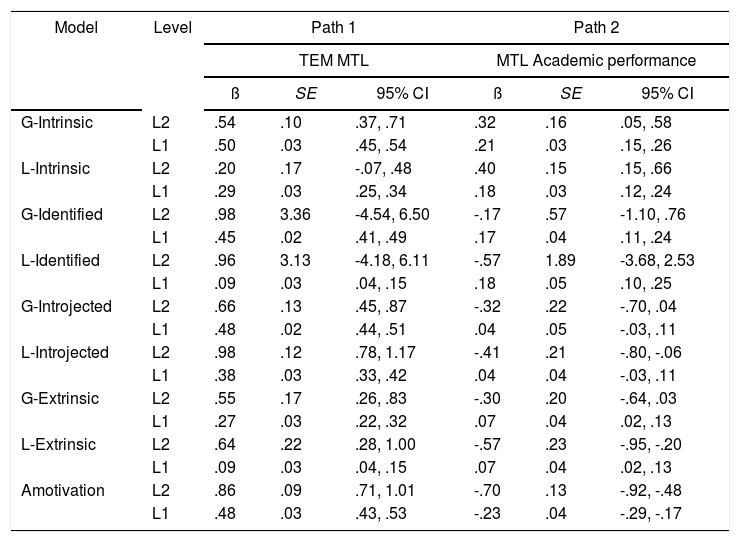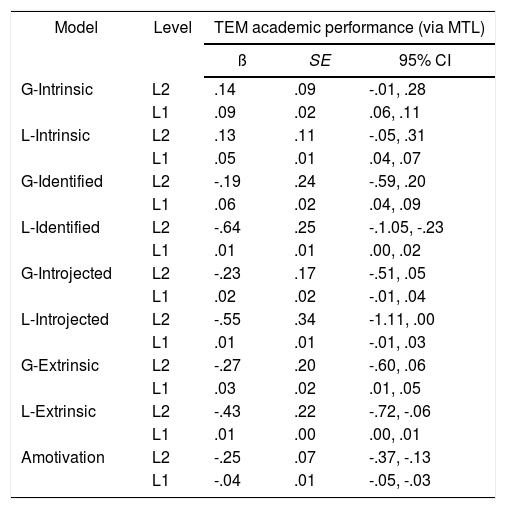Previous studies have shown that teacher messages are related with many school-related outcomes, such as students’ engagement and performance. However, it is still unknown how the combination of different elements within teacher messages relate with these outcomes. Based on the message framing theory and the self-determination theory, the present study examined how teachers’ engaging messages link to student’s motivation to learn and academic performance. A total of 1209 students between grades 8 and 12 drawn from 63 classes participated in the study. Participants completed self-report measures of teachers’ engaging messages and motivation to learn. Academic performance was measured using students’ grades obtained from school records. Multilevel structural equation models were performed (ML-SEM) to test the hypothesized relations among variables. ML-SEMs results confirmed our hypothesis and showed that teacher engaging messages indirectly predicted student’s academic performance via motivation to learn. Specifically, the autonomous forms of motivation to learn positively predicted performance and the controlled forms of motivation to learn where negatively related to performance. The present findings highlight a resource teachers can rely on to motivate students and improve their academic outcomes. These results set the basis for future educational interventions targeting teaching practices.
Estudios previos han demostrado que los mensajes del profesorado están relacionados con múltiples variables a nivel escolar, entre ellas, la implicación y el rendimiento de los estudiantes. Sin embargo, aún se desconoce cómo la combinación de los distintos elementos de estos mensajes se relaciona con estas variables. Fundamentado en la teoría del enfoque del mensaje y en la teoría de la autodeterminación, el presente estudio analiza cómo los mensajes del profesorado se relacionan con la motivación para aprender de los estudiantes y con su rendimiento académico. En total, 1209 estudiantes entre los cursos de 2° de ESO y 2° de Bachillerato, repartidos en 63 grupos, han participado en el estudio. Los estudiantes han notificado, mediante medidas de autoinforme, sobre los mensajes de su profesorado y su propia motivación para aprender, mientras que el rendimiento académico de los estudiantes se ha obtenido a través de las calificaciones oficiales de sus expedientes académicos. Para comprobar las relaciones esperadas entre las variables se han llevado a cabo varios modelos multinivel de ecuaciones estructurales (ML-SEM). Los resultados de los ML-SEM han confirmado nuestras hipótesis y han mostrado que los mensajes del profesorado predicen indirectamente el rendimiento académico de los estudiantes mediante la motivación para aprender. En concreto, la motivación autónoma para aprender predice positivamente el rendimiento y la motivación controlada se relaciona negativamente. Estos resultados ponen de relieve un nuevo recurso del que puede hacer uso el profesorado para motivar a sus estudiantes y mejorar sus resultados académicos, sentando las bases para futuras intervenciones educativas dirigidas a mejorar la práctica docente.







